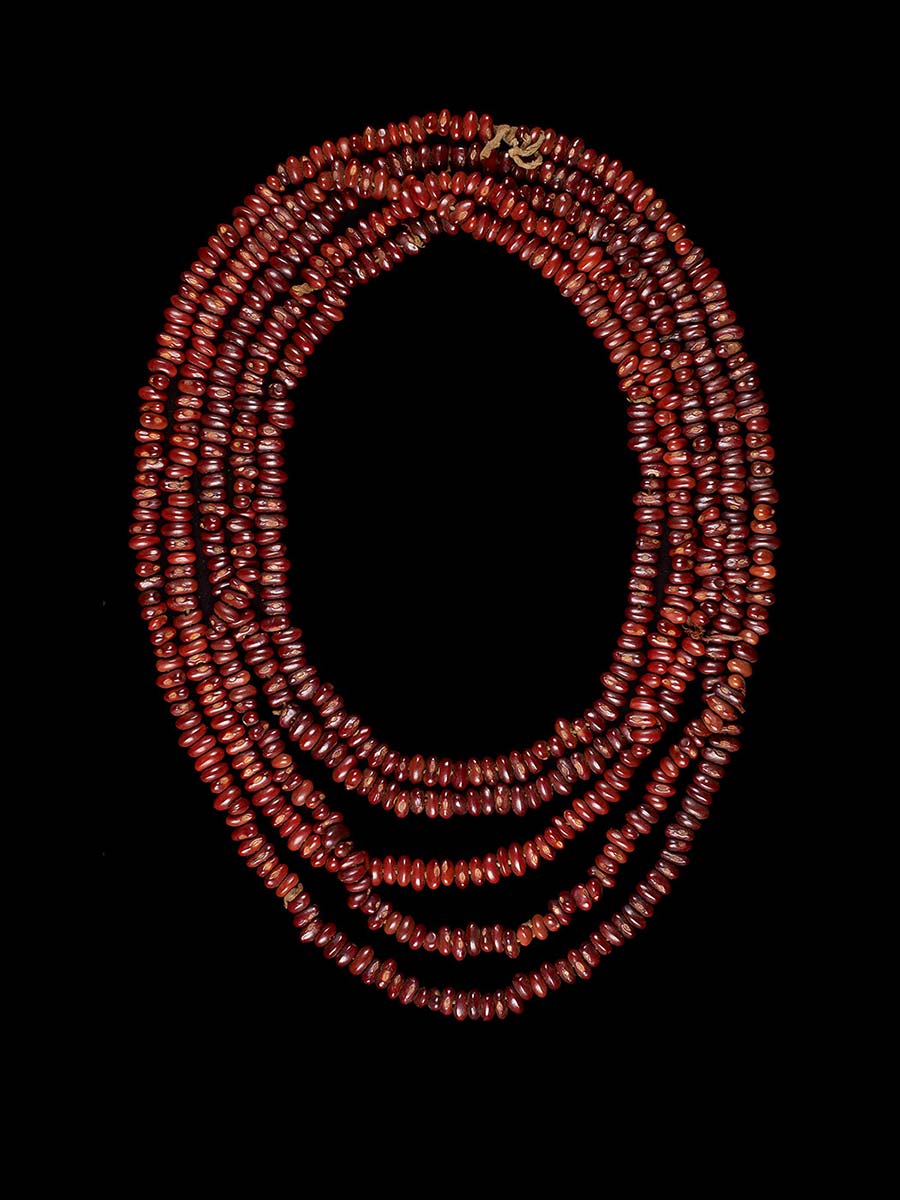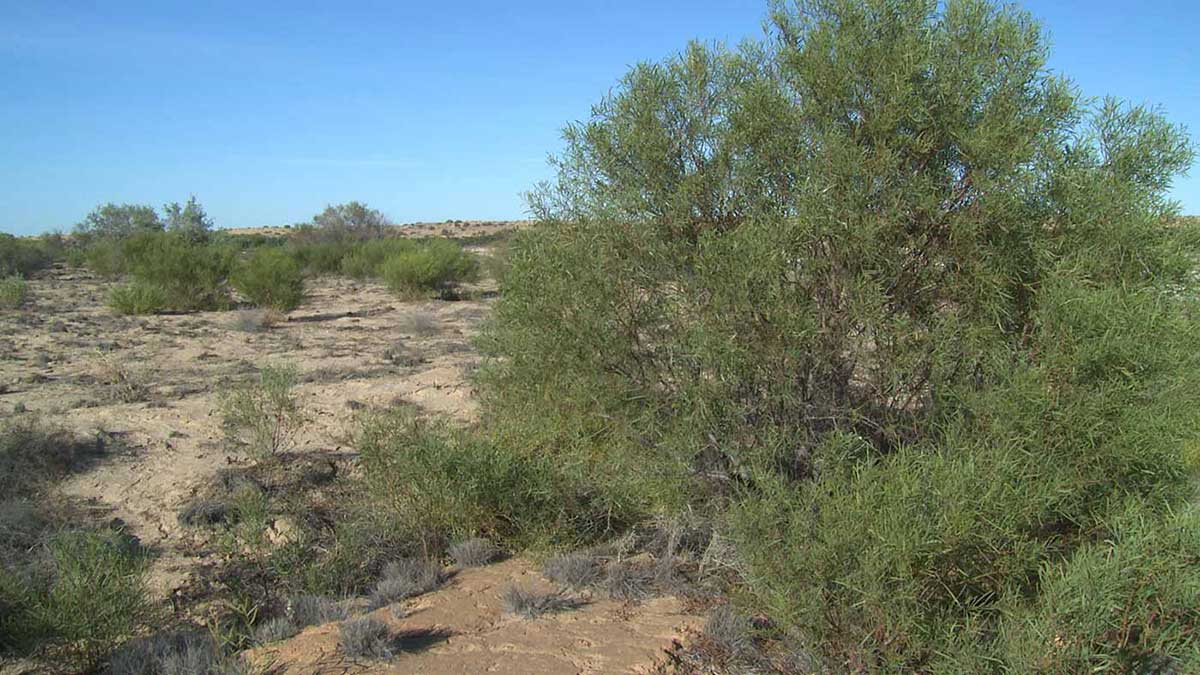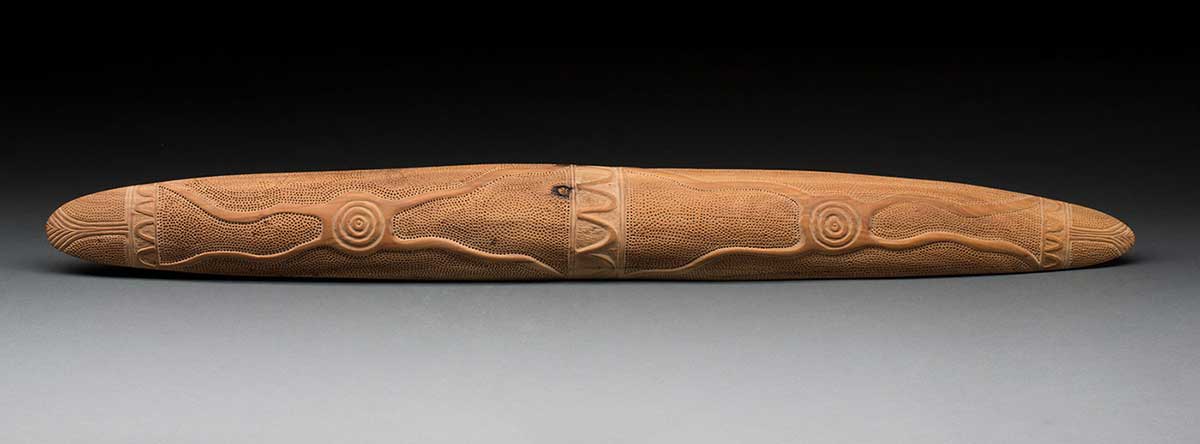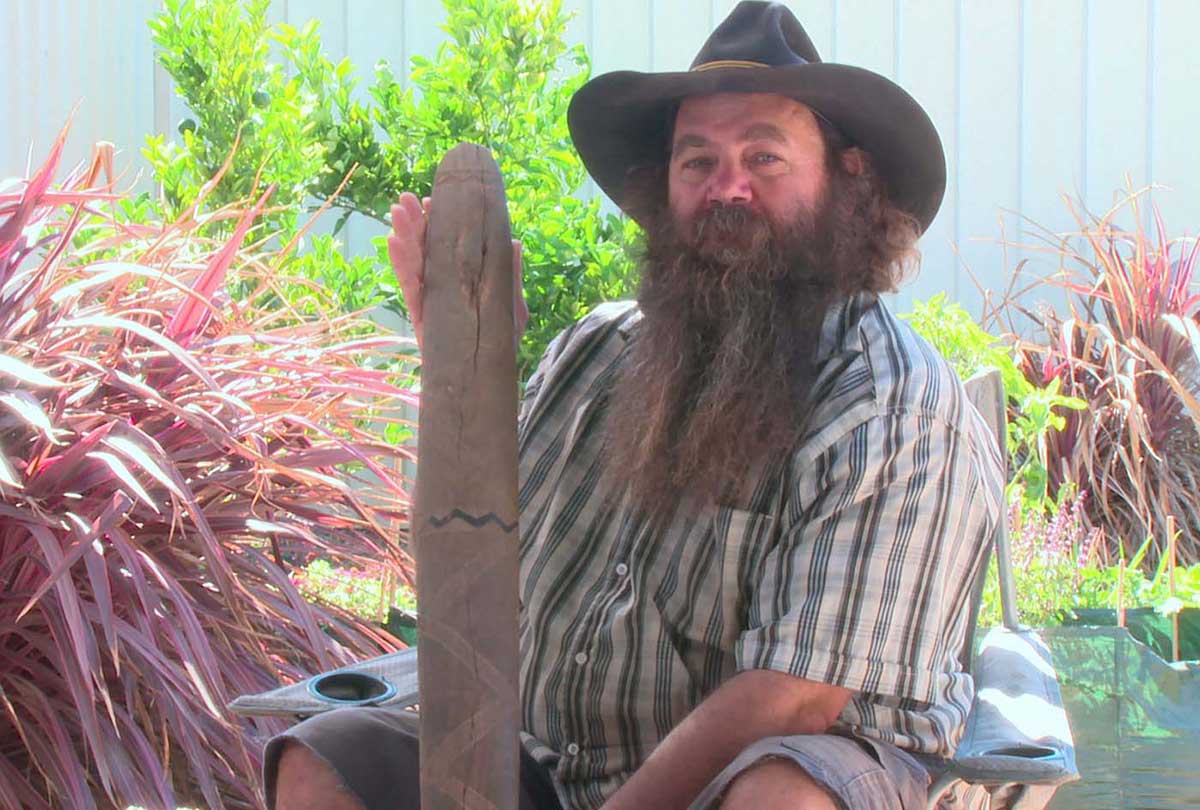A time to learn
Aunty Barbara Vale, Dieri elder, 2014:
When I visit Killalpaninna I get a strong feeling of belonging. It’s our land, Dieri land. I feel safe and relaxed and always come away feeling good for having been there.
Lake Killalpaninna has always been a special place for Dieri people. It periodically fills with water that flows down from the Channel Country of south-west Queensland, and was a stop on a trade route that followed a series of water sources. Killalpaninna also attracted temporary visitors like the German Lutheran missionaries who, by the 1890s, had established a mission there.
Evelyn Miklavec, Dieri, 2014:
That lake is sacred to us.
HJ ‘Harry’ Hillier came to Killalpaninna in the 1890s. He taught Dieri children, and sometimes their elders, and together they made excursions into country to gather specimens and artefacts. Hillier’s students taught him their language and Dieri food-gathering and hunting techniques.
Robert Waye-Hill, Dieri, 2014:
We still go hunting, we use different weapons now, but we use same knowledge of country.
Dieri people remain strongly connected to their land and have secured native title to their country.
Old objects

This necklace and the girdle and boomerang also on display in Encounters were among a large collection that the British Museum purchased from Sarah Hillier in 1908. They had been collected by her son, Harry, who had been sent out to Australia’s arid interior to cure his tuberculosis.
Hillier collected the Dieri objects between 1893 and 1905, while living at the Lutheran mission at Killalpaninna where he worked as a teacher. He also gave Aboriginal material to museums in England, Scotland and Australia.
Willie Dawson, Dieri, 2014:
All of the dots that you’ve got along here actually represent your cracked ground, that a spirit, that was depicted by the whirly winds down the bottom here ... they are actually the spirits of Dieri members or family that have passed ... they literally have to follow the cracked ground to a place where they have to take a drink from a sacred well before they can ascend up into the heavens.
Shirley Waye-Hill, Dieri, 2014:
We don’t live like that anymore. We don’t practise making those things, but we practise our language and it develops as our knowledge and culture does.


